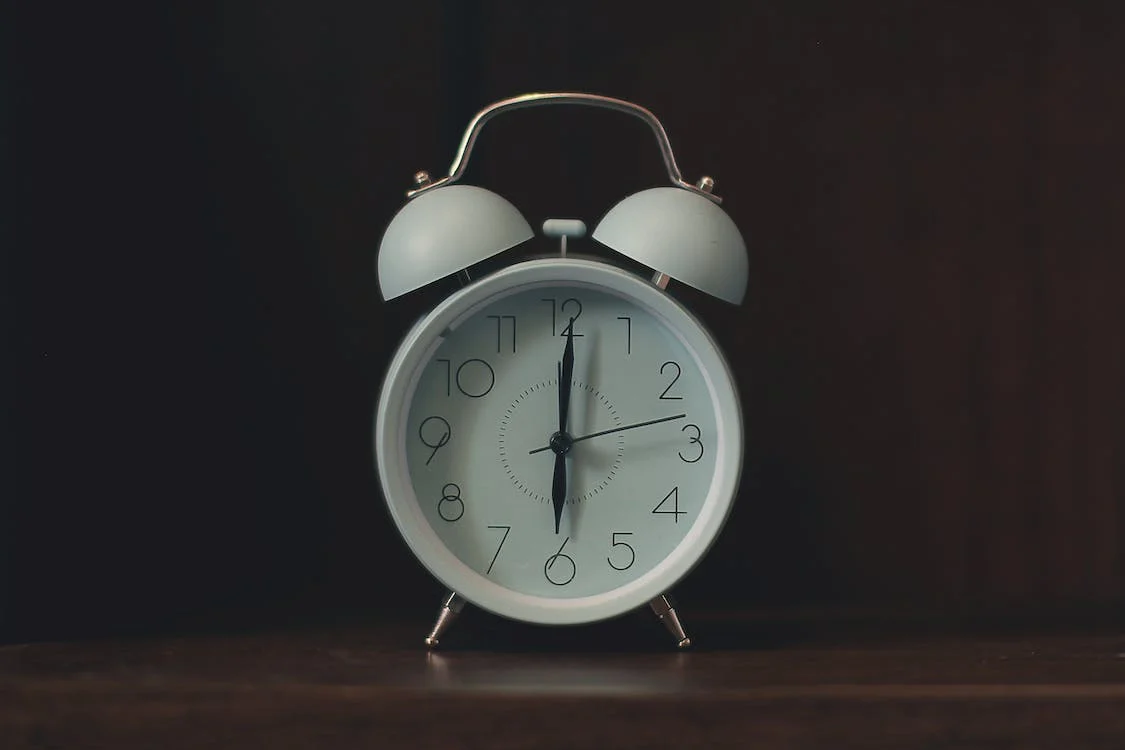How to wake up early?! Waking up early boasts positive health benefits, including better concentration, long-lasting energy, and more. Here are eight simple tips to help!
Getting out of bed in the morning can be challenging because it usually sounds far more enticing to stay in. But getting up early has several advantages for your health, including increased productivity, longer-lasting energy, higher sleep quality, and better focus.
It takes effort to get up early, but anyone can become an early bird with enough practice.
Set an earlier bedtime
You might be able to get up earlier each morning if you train your body to go to sleep earlier. The average adult should strive for seven to nine hours of sleep per night; anything less can make it difficult to wake up early.
Unplug before bed
“Unplugging” from smartphones and laptops about 30 minutes before bed can contribute to a better night of sleep. According to The Sleep Judge, the blue light emitted from screens can alter your body’s natural melatonin levels, making it more difficult to fall asleep. An earlier bedtime with zero interference from tech can make you happier and more energized the next day.

Avoid late-night snacking
While some studies have shown that snacking close to bedtime can help dull any hunger pains that may appear overnight, others have shown that it can cause less enjoyable symptoms such as acid reflux. It’s easy to confuse hunger with tiredness, so instead, ditch the snacks and save your appetite for breakfast.
Avoid sugary energy drinks and coffee
Energy drinks and coffee could help you study more effectively, but consuming a lot of sugar or caffeine right before bed can make it harder to get to sleep and remain asleep. It has been demonstrated that limiting the consumption of sugary sodas, energy drinks, and coffee results in better sleeping patterns. To stay hydrated before night, try switching to tea or water.

Silence your phone
Before going to bed, silence your phone’s ringtone or put it in “do not disturb” mode. Your sleep cycle will be disturbed if you are woken up in the middle of the night by notifications that encourage you to check your phone. Do yourself a favor and turn off all electronics before going to bed since that text message or amusing meme will still be there in the morning.
Avoid all-nighters
Skipping a night’s sleep to finish an assignment is not a wise choice. Not only can it lead to exhaustion the next morning, lack of sleep can also inhibit your body’s ability to function properly.
According to vice, a recent study reported that someone who goes a night without sleep will often end up with the cognitive impairment of an individual who drank to the legal limit. This proves just how important sleep is to our bodies. If you have a big deadline approaching, avoid procrastinating so you won’t have to pull an all-nighter to finish your work. You will quickly realize the lack of sleep is not worth it.
Sleep with your curtains open
Leave the blinds or curtains slightly open before going to bed. This allows sunlight to flow through it and you wake up more naturally. On sunny days, this can be an effective strategy.

Place your alarm clock across the room
To prevent the alarm from moving, place the phone or alarm clock on the other side of the room where the bed is. That way, when the alarm goes off, you have to get out of bed to turn it off. Without the temptation to snooze, you’ll wake up on time.
Training your body to wake up early will take time, so don’t expect to be able to wake up at 5 a.m. every day just yet. Try implementing small changes into your routine to make early wakeups feasible, such as setting an earlier bedtime, moving the location of your alarm clock, or ditching snacks and sugary drinks before bed. With these small changes, your body will eventually get in the habit of getting up early.
If you desire to get any product that makes your life easier you can check this link:
“Wake up early and tackle the day before it tackles you. Be on offense, not defense.”
Evan Carmichael







